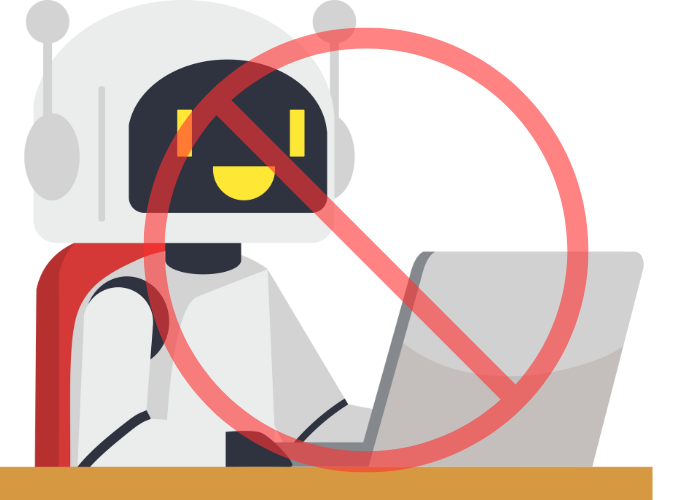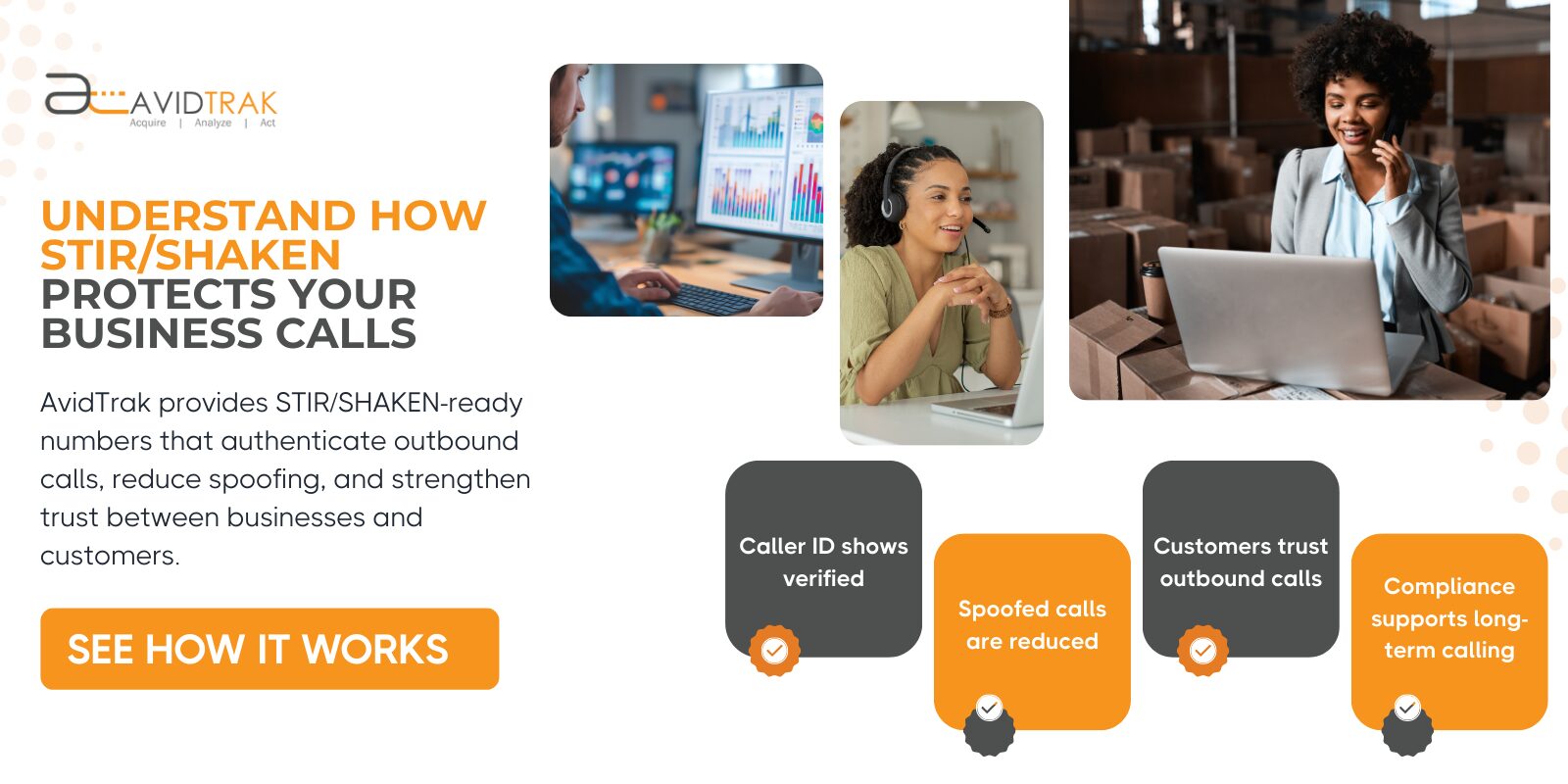The surge in robocalls, caller ID spoofing, and fraudulent dialing is creating barriers for businesses that rely on phone calls to engage with customers. According to the YouMail Robocall Index, U.S. subscribers received about 38 billion robocalls during all of 2024, underscoring the scale of caller-ID fraud.
The growing need for caller ID authentication has led to industry-wide adoption of a framework known as STIR/SHAKEN, allowing voice service providers to authenticate calls at the moment of call origination using digital certificates, public-key cryptography, and signed SIP headers within the session initiation protocol.
The TRACED Act, backed by the Federal Communications Commission (FCC), has required gateway providers, carriers, and participants in the VoIP Telephone Network to implement the STIR/SHAKEN framework. This is a major step toward stopping call spoofing, improving call trust, and supporting broad robocall mitigation programs across the telecommunications industry.
This guide explains how the STIR/SHAKEN framework works, outlines attestation levels, and demonstrates how AvidTrak integrates verified call data with advanced tools, including AI transcription and caller ID verification. AvidTrak supports attribution, lead tracking, and spam filtering to improve call outcomes and protect revenue.
Summary
- The STIR/SHAKEN framework uses digital signatures and certificates to verify caller identity, helping telecom providers block spoofed calls and improve trust across phone networks.
- Calls receive A, B, or C attestation based on the provider’s confidence in the caller’s identity, with each level encoded into the SIP identity header and verified by downstream carriers.
- Calls signed and verified through STIR/SHAKEN help businesses reduce call rejections, improve answer rates, and ensure consistent delivery of campaign-driven conversations.
- The TRACED Act mandates caller ID verification across U.S. carriers, with enforcement actions for noncompliance, making STIR/SHAKEN essential for phone-based marketing compliance.
- STIR/SHAKEN-enabled calls paired with spam detection and call blocking tools improve lead quality, eliminate nuisance traffic, and ensure focus on high-intent prospects.
- AvidTrak delivers affordable pricing, expert product support, and deep domain knowledge to help businesses take control of verified call performance. With STIR/SHAKEN-compliant tracking numbers, caller ID authentication, robocall defense, and campaign-level analytics, AvidTrak ensures every call reaches the right audience and drives measurable business growth.
Understanding STIR/SHAKEN Technology
The STIR/SHAKEN framework is a set of standards designed to prevent caller ID spoofing by verifying the caller’s identity at the moment a phone call is made. The goal is to give recipients confidence that the number displayed on their screen matches the actual caller’s number.
STIR stands for Secure Telephone Identity Revisited, and SHAKEN stands for Signature-based Handling of Asserted Information Using Tokens. These protocols work together to bring digital trust to voice calls made over VoIP systems, mobile networks, and traditional landlines.
How the STIR/SHAKEN Framework Works
The STIR/SHAKEN framework works by attaching a digital signature to each outbound call at the time of call origination. This signature is created by the service provider using a digital certificate issued by a trusted Certificate Authority.
The gateway providers and carriers verify the SIP header and signature using public-key cryptography. Based on the verification result, the call may be tagged as verified, flagged as potential spam, or blocked entirely. Below is a breakdown of the process, from call origination to tagging, along with the regulatory rules that govern it.
1. Call Origination & Certification
The STIR/SHAKEN process begins when a call is placed and the originating service provider verifies whether the caller is known and authorized to use the phone number displayed. Based on this verification, the provider assigns an attestation rating that reflects the level of trust in the call’s identity.
There are three types of attestation levels used within the STIR/SHAKEN framework:
- A attestation is applied when the provider knows the caller and confirms that the caller is authorized to use the number.
- B attestation is used when the caller is known, but the provider cannot confirm ownership of the phone number.
- C attestation is given when the provider cannot verify either the caller or the number and is simply passing the call through.
These attestation levels are encoded into the SIP header by the originating provider, using the RFC 8224, RFC 8225, and RFC 8226 standards, and signed with a digital certificate issued by a recognized Certificate Authority. The process of STIR/SHAKEN call attestation creates a digital identity for the call that other carriers can verify before the call is delivered.
2. Call Verification Process
The receiving carrier plays a key role in validating the call’s identity. Each provider verifies the SIP header and checks the public key from the originating Certificate Authority to confirm authenticity.
The call verification step helps detect any tampering that may occur during transmission. It also confirms that the caller ID authentication technology applied by the originating provider is valid within the IP portion of the network.
Verification succeeds when the terminating carrier validates the PASSporT signature against the public certificate of the originating carrier; no additional OCN or CSR data is required in the SIP message.
3. Call Blocking or Tagging
The terminating provider takes action when a call lacks valid digital certificates or fails the attestation process. Incomplete or unverified calls may be flagged as “Spam Risk” or “Unknown Caller.”
Calls with invalid or missing signatures may be blocked using the provider’s call filter algorithm. Verified calls may display a Caller Verified indicator or support branded calling to improve trust.
Regulatory Impact of the TRACED Act
The TRACED Act gives the Federal Communications Commission (FCC) the authority to mandate the use of STIR/SHAKEN by all U.S.-based voice service providers, gateway providers, and carriers. The law also enables penalties for providers that fail to follow robocall mitigation plans or meet FCC filing requirements.
STIR/SHAKEN is a required framework for all phone-based communication. Businesses that rely on call completion and inbound leads must maintain proper caller ID verification to prevent legitimate calls from being flagged, blocked, or ignored, which can result in lost revenue and missed connections.
How AvidTrak Supports STIR/SHAKEN
AvidTrak provides tracking numbers issued through STIR/SHAKEN-compliant voice service providers, ensuring calls placed through these numbers meet industry authentication standards.
Businesses that use AvidTrak benefit from reliable caller ID authentication across every tracked call. With built-in features such as AI-powered transcription, call source tracking, and IVR tools, AvidTrak gives marketing and sales teams the confidence that their inbound leads are tied to legitimate, authenticated calls.
7 Benefits of STIR/SHAKEN for Call-Driven Businesses
The STIR/SHAKEN framework is not just a technical requirement; it is a practical solution for improving trust, protecting lead quality, and increasing the reliability of phone-based outreach.
Businesses that rely on inbound or outbound calls can improve their results by partnering with platforms that support caller ID authentication, verified delivery, and tracking of high-quality calls.
1. Increased Call Trust and Consumer Confidence
Businesses that use verified caller ID information are more likely to connect with customers on the first attempt. In industries where unanswered calls result in lost revenue, STIR/SHAKEN verification helps build trust and improves the likelihood of genuine conversations.
How AvidTrak Supports Call Trust
 AvidTrak assigns dynamic tracking numbers through STIR/SHAKEN-compliant providers, helping businesses use verified caller ID across campaigns. With built-in call attribution, teams can trace inbound calls back to specific marketing sources, improving lead quality, increasing answer rates, and reducing missed revenue.
AvidTrak assigns dynamic tracking numbers through STIR/SHAKEN-compliant providers, helping businesses use verified caller ID across campaigns. With built-in call attribution, teams can trace inbound calls back to specific marketing sources, improving lead quality, increasing answer rates, and reducing missed revenue.
2. Decreased Fraud and Identity Theft Risks
The STIR/SHAKEN framework prevents spoofed calls by using digital certificates and public-key cryptography to verify the caller’s identity. Calls that fail this check are flagged or blocked by downstream carriers.
How AvidTrak Helps Prevent Spoofing
 AvidTrak provides tracking numbers routed through compliant voice service providers, reducing the risk of call rejection due to unauthenticated phone numbers. To support lead quality, AvidTrak offers tools such as AI-powered transcription and call outcome tagging, which help businesses evaluate the legitimacy of calls based on behavior and content, not just source data.
AvidTrak provides tracking numbers routed through compliant voice service providers, reducing the risk of call rejection due to unauthenticated phone numbers. To support lead quality, AvidTrak offers tools such as AI-powered transcription and call outcome tagging, which help businesses evaluate the legitimacy of calls based on behavior and content, not just source data.
3. Improved Call Blocking and Filtering
Telecom providers apply filtering rules when they detect calls with failed signatures or a ‘C’ attestation (unknown caller ID). These rules trigger a call filter algorithm that either labels the call or blocks it entirely. The result is a reduction in nuisance traffic reaching both consumers and businesses.
How AvidTrak Helps Monitor Call Deliverability
 AvidTrak supports caller ID authentication by routing calls through STIR/SHAKEN-compliant providers. While network-level data, such as attestation ratings, is managed within carrier systems, AvidTrak gives businesses clear visibility into call volume, missed calls, and call patterns, while also blocking robocalls, helping teams identify and address potential delivery issues.
AvidTrak supports caller ID authentication by routing calls through STIR/SHAKEN-compliant providers. While network-level data, such as attestation ratings, is managed within carrier systems, AvidTrak gives businesses clear visibility into call volume, missed calls, and call patterns, while also blocking robocalls, helping teams identify and address potential delivery issues.
4. Higher Conversions from Verified Callers
Businesses see better results when unverified or spoofed calls are filtered before reaching their teams. The remaining call volume is more likely to include customers with real intent, which leads to higher conversion rates and less time spent on low-quality interactions.
How AvidTrak Connects Campaigns to Conversions
 AvidTrak captures the full journey of a call, starting from the ad source, keyword, or landing page interaction, through to the inbound call and its outcome. Marketers can shift spend to campaigns that consistently result in authenticated, completed calls.
AvidTrak captures the full journey of a call, starting from the ad source, keyword, or landing page interaction, through to the inbound call and its outcome. Marketers can shift spend to campaigns that consistently result in authenticated, completed calls.
5. Better Compliance with Telecom Regulations
Regulatory bodies such as the FCC and CRTC require telecom providers and upstream carriers to support STIR/SHAKEN protocols and maintain active robocall mitigation plans. Failure to comply with these requirements can result in blocked calls, enforcement actions, or financial penalties.
How AvidTrak Keeps Numbers Compliant
 AvidTrak provisions STIR/SHAKEN-compatible tracking numbers through trusted telecom partners. While upstream carriers manage the underlying attestation process, AvidTrak’s call tracking solution ensures that all assigned numbers support caller ID authentication, helping businesses reduce the risk of call blocking and stay aligned with industry requirements.
AvidTrak provisions STIR/SHAKEN-compatible tracking numbers through trusted telecom partners. While upstream carriers manage the underlying attestation process, AvidTrak’s call tracking solution ensures that all assigned numbers support caller ID authentication, helping businesses reduce the risk of call blocking and stay aligned with industry requirements.
6. Strengthened Brand Reputation
Businesses that rely on phone outreach must protect their caller reputation to maintain trust and answer rates over time. Repeatedly flagged or blocked calls can damage credibility. Using verified phone numbers through STIR/SHAKEN helps reduce the risk of misclassification and signals legitimacy to both carriers and customers.
How AvidTrak Supports Caller Reputation
 AvidTrak helps businesses monitor call completion rates and track the performance of each number across campaigns. With tools such as Lead Maximizer, businesses can review caller ID delivery, assess lead outcomes, and maintain a strong brand presence through verified, high-quality calls.
AvidTrak helps businesses monitor call completion rates and track the performance of each number across campaigns. With tools such as Lead Maximizer, businesses can review caller ID delivery, assess lead outcomes, and maintain a strong brand presence through verified, high-quality calls.
7. Real-Time Analytics and Reporting
The STIR/SHAKEN framework generates verification data that allows providers to distinguish between valid and suspicious calls. This verification data helps businesses improve their reporting by showing which calls were delivered, flagged, or blocked, making performance metrics more accurate.
How AvidTrak Delivers Actionable Custom Call Reporting
 AvidTrak offers custom reporting dashboards that track key metrics, including call volume, conversion outcomes, and verified lead activity. Marketing and sales teams can use this data to allocate budgets more effectively and optimize campaigns based on actual call performance, rather than relying on assumptions.
AvidTrak offers custom reporting dashboards that track key metrics, including call volume, conversion outcomes, and verified lead activity. Marketing and sales teams can use this data to allocate budgets more effectively and optimize campaigns based on actual call performance, rather than relying on assumptions.
Real-World Applications of STIR/SHAKEN with AvidTrak
Businesses across various industries rely on verified phone calls to connect with leads, close sales, and address service inquiries. When calls are blocked or flagged due to spoofed numbers, those opportunities are often lost. The STIR/SHAKEN framework helps prevent this by authenticating caller ID information before the call reaches the recipient.
Industries That Depend on Call Trust
Home Services
Inbound phone calls are essential for businesses such as plumbing, HVAC, and repair services. These companies depend on timely responses to customer inquiries, many of which are urgent.
AvidTrak assigns STIR/SHAKEN-compliant tracking numbers and uses zip code-based routing to ensure that verified calls are directed to the correct teams. Call volume and missed calls can also be tracked for quick follow-up.
Legal and Financial Services
Law firms, lenders, and insurance providers often experience low answer rates when using unfamiliar numbers. With AvidTrak’s support for caller ID authentication and campaign-level tracking, verified calls are more likely to connect. AI-powered transcription and call outcome tagging help evaluate which leads are legitimate, improving intake quality and marketing ROI.
Healthcare Providers
Dental clinics and medical offices rely on calls for scheduling, follow-ups, and reminders. When calls are flagged or ignored, patients often miss out on essential care. AvidTrak uses compliant voice service providers to minimize caller ID issues and ensure high call completion rates for providers managing patient communication at scale.
Activate Caller Trust with STIR/SHAKEN-Ready Tracking
AvidTrak provides businesses with full control over inbound call performance, featuring STIR/SHAKEN-compliant tracking numbers, strong robocall filtering, and caller ID authentication built in. Every call is tracked, attributed, and protected, backed by expert support and competitive pricing.
Start your free trial now and convert every verified call into measurable growth.
Challenges and Considerations in STIR/SHAKEN Adoption
The STIR/SHAKEN framework plays an essential role in preventing caller ID spoofing, but its adoption brings challenges. The following challenges highlight areas where adoption gaps can still affect call reliability and attribution.
Technical Gaps Across Carriers
Telecom providers continue to face challenges in integrating STIR/SHAKEN across their diverse systems. Some calls are routed through carriers that do not fully support attestation levels, SIP headers, or digital certificate validation, which can result in legitimate calls being flagged or blocked.
The inconsistencies can impact marketing agencies when calls go unanswered or are incorrectly classified, despite originating from valid sources.
Regulatory Pressure and Transition
Agencies such as the FCC and CRTC are increasing enforcement of robocall mitigation plans and RFC 8224–8226 requirements. Businesses that rely on voice communication, especially those using older VoIP systems, are adapting in stages to meet evolving standards for caller ID authentication and trusted delivery.
Marketers must remain aware of how calls are routed and whether tracking numbers comply with current STIR/SHAKEN requirements.
How AvidTrak Supports the Transition
AvidTrak issues STIR/SHAKEN-compliant tracking numbers through certified providers, eliminating the need for businesses to manage telecom-level elements such as Certificate Authorities or attestation validation. With built-in robocall blocking, campaign-level call tracking, and expert product support, AvidTrak helps businesses maintain visibility and lead quality while staying aligned with call authentication standards.
Frequently Asked Questions
1. How does AvidTrak handle robocall filtering?
AvidTrak includes a built-in robocall mitigation feature that blocks automated calls using an audio CAPTCHA. This protects sales and support teams from unwanted traffic and ensures that tracked calls reflect genuine customer interest.
3. How does AvidTrak support businesses that rely on inbound calls?
AvidTrak helps businesses route calls from verified numbers using features such as zip code-based routing, IVR, and caller ID authentication, improving call completion rates and lead handling accuracy across campaigns.
4. What role does AvidTrak play in protecting lead quality?
AvidTrak uses robocall mitigation tools to block automated spam calls and ensure that tracked leads reflect real customer activity. This keeps sales teams focused on qualified conversations that can be tied to marketing outcomes.
5. Can AvidTrak be used alongside existing VoIP systems?
Yes. AvidTrak works independently of a company’s phone system. Verified tracking numbers can be forwarded to any VoIP Telephone Network, ensuring businesses maintain their existing setup while gaining STIR/SHAKEN and attribution benefits.
6. Why is STIR/SHAKEN important for businesses using call tracking?
Calls from unverified phone numbers are more likely to be flagged or ignored. By using AvidTrak’s STIR/SHAKEN-enabled numbers, businesses improve trust, increase pickup rates, and maintain visibility in environments where carrier-level filtering is common.
7. What kind of reporting does AvidTrak provide on verified calls?
AvidTrak provides analytics dashboards that include call volume, call completion rates, and lead outcomes. While carriers handle attestation levels, AvidTrak provides visibility into which numbers are performing and where to optimize.



